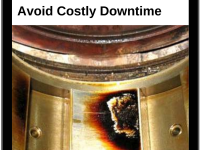Machinery lubrication and oil analysis training are the foundation of today’s asset reliability programs. Yet many organizations still underestimate how significantly lubrication affects uptime, energy efficiency, and component longevity. Effective training integrates two critical disciplines: lubrication best practices and oil condition monitoring. Lubrication errors—the wrong product, improper viscosity, contamination during transfer, etc.—often lead to…
Read more






